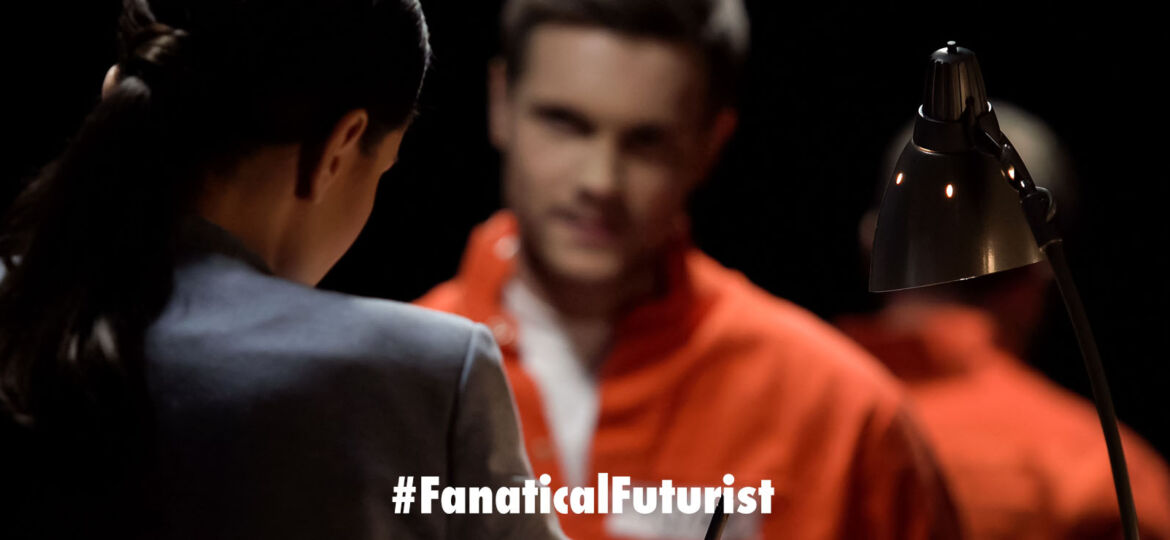
WHY THIS MATTERS IN BRIEF
AI is good at some things, and cheap, so what happens when AI goes to bat in your corner in a court room?
 Love the Exponential Future? Join our XPotential Community, future proof yourself with courses from XPotential University, read about exponential tech and trends, connect, watch a keynote, or browse my blog.
Love the Exponential Future? Join our XPotential Community, future proof yourself with courses from XPotential University, read about exponential tech and trends, connect, watch a keynote, or browse my blog.
After seeing a few of these emerge over the years, including a few Artificial Intelligence (AI) based judges, an AI “Robo-Lawyer” I’ve spoken about before will be the first of its kind to help a defendant fight a traffic ticket in an actual court room next month.
Joshua Browder, CEO of DoNotPay, a company which has been the subject of lots of media attention over the years for its AI-lawyer antics, said the company’s AI-creation runs on a smartphone, listens to court arguments, and formulates responses for the defendant. The AI lawyer also tells the defendant what to say in real-time, through headphones.
The AI firm has already used AI-generated letters and chatbots to help people secure asylum and refunds for in-flight Wifi that didn’t work, as well as to lower bills, dispute parking tickets, and fight homelessness, according to Browder. All told the company has relied on these AI templates to win more than 2 million customer service disputes and court cases on behalf of individuals against institutions and organizations, he added.
It has raised $27.7 million from tech-focused venture capital firms, including Andreessen Horowitz and Crew Capital.
“In the past year, AI tech has really developed and allowed us to go back and forth in real time with corporations and governments,” he told reporters of recent advances. “We spoke live [with companies and customer service reps] to lower bills with companies; and what we’re doing next month is try to use the tech in a courtroom for the first time.”
If the robot lawyer loses the case, DoNotPay will cover any fines, Browder said. Browder declined to disclose the name of the client and the court.
Some courts allow defendants to wear hearing aids, some versions of which are bluetooth-enabled. That’s how Browder determined that DoNotPay’s technology can legally be used in this case.
However, the tech isn’t legal in most courtrooms yet. Some states require that all parties consent to be recorded, which rules out the possibility of a robot lawyer entering many courtrooms. Of the 300 cases DoNotPay considered for a trial of its robot lawyer, only two were feasible.
“It’s within the letter of the law, but I don’t think anyone could ever imagine this would happen,” Browder said. “It’s not in the spirit of law, but we’re trying to push things forward and a lot of people can’t afford legal help. If these cases are successful, it will encourage more courts to change their rules.”
The ultimate goal, according to Browder, is to democratize legal representation by making it free for those who can’t afford it, in some cases eliminating the need for pricey attorneys. But given that the technology is illegal in many courtrooms, he doesn’t expect to be able to commercialize the product any time soon.
“This courtroom stuff is more advocacy,” he said. “It’s more to encourage the system to change,” Browder explained, and he is well aware of the challenge and hurdles on the horizon. When he tweeted about demoing DoNotPay’s robot lawyer in court, lawyers threatened him and told him he’d be sent to jail, he said.
“There are a lot of lawyers and bar associations that would not support this,” Browder said. Browder wants to arm individuals with the same tools that large corporations can typically access, but are out of reach for those without deep resources.
“What we are trying to do is automate consumer rights,” Browder said. “New technologies typically fall into the hands of big companies first, and our goal is put it in hands of the people first.”
AI powered chatbot ChatGPT has exploded in popularity recently for its ability to spit out coherent essays and books on wide-ranging topics in under one minute. The technology has drawn interest from investors, with the Wall Street Journal reporting that parent company OpenAI could soon attract investments valuing it at $29 Billion. But Browder highlighted its shortcomings and in some cases, lack of sophistication.
“ChatGPT is very good at holding conversations, but it’s terrible at knowing the law. We’ve had to retrain these AIs to know the law,” he said. “AI is a high school student, and we’re sending it to law school.”
















